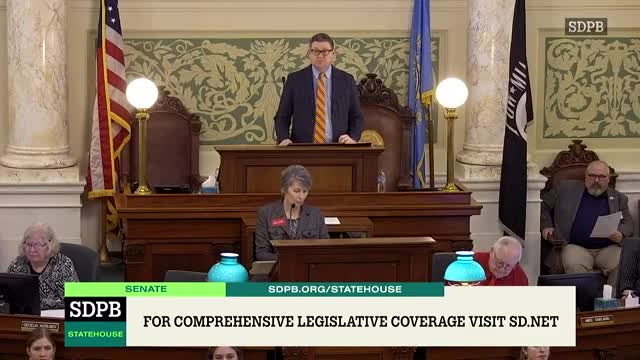Senate rejects education tax‑credit bill aimed at expanding school choice
Get AI-powered insights, summaries, and transcripts
Subscribe
Summary
Senate Bill 190, an education tax‑credit program intended to create a property‑tax credit to subsidize nonpublic or alternative education (K–12), failed after debate about fiscal impact on local school funding; LRC fiscal estimates cited wide ranges.
The Senate voted down Senate Bill 190, which proposed an education tax credit that would allow property owners to receive credits against local property tax for qualifying tuition and educational expenses for K–12 nonpublic or alternative education.
Sponsor Senator Rodney Carley described the proposal as a property‑tax credit mechanism to give families and property owners flexibility to fund nonpublic or alternative education, with limits designed to contain fiscal exposure: the credit would be age‑limited to ages 5–18, capped at 80% of the per‑student formula (the sponsor cited the current per‑student formula of $7,500, producing an $6,000 cap per student), and constrained to the school‑portion (approximately 60%) of property tax. Carley said the bill purposely sought to be "skinny" to limit fiscal risk.
Opponents, including Senator Shane Fish and others, pointed to the Legislative Research Council fiscal estimate and committee testimony that projected a wide cost range and potential large local impacts; the LRC fiscal note cited a possible range of $33 million to $126 million to local school districts. Senator Fish also noted concerns over administrative complexity and the bill’s rule that credits be charged to the school district where the property is located even if the beneficiary student lives elsewhere, which could complicate budgeting for districts.
Senators debated tradeoffs between parental choice and potential reductions in school revenue. Senator Nelson framed the policy as shifting a small percentage of state K–12 funding but emphasized the program as representing families and opportunity. On final roll call the secretary announced 11 yeas and 24 nays; the bill failed.
